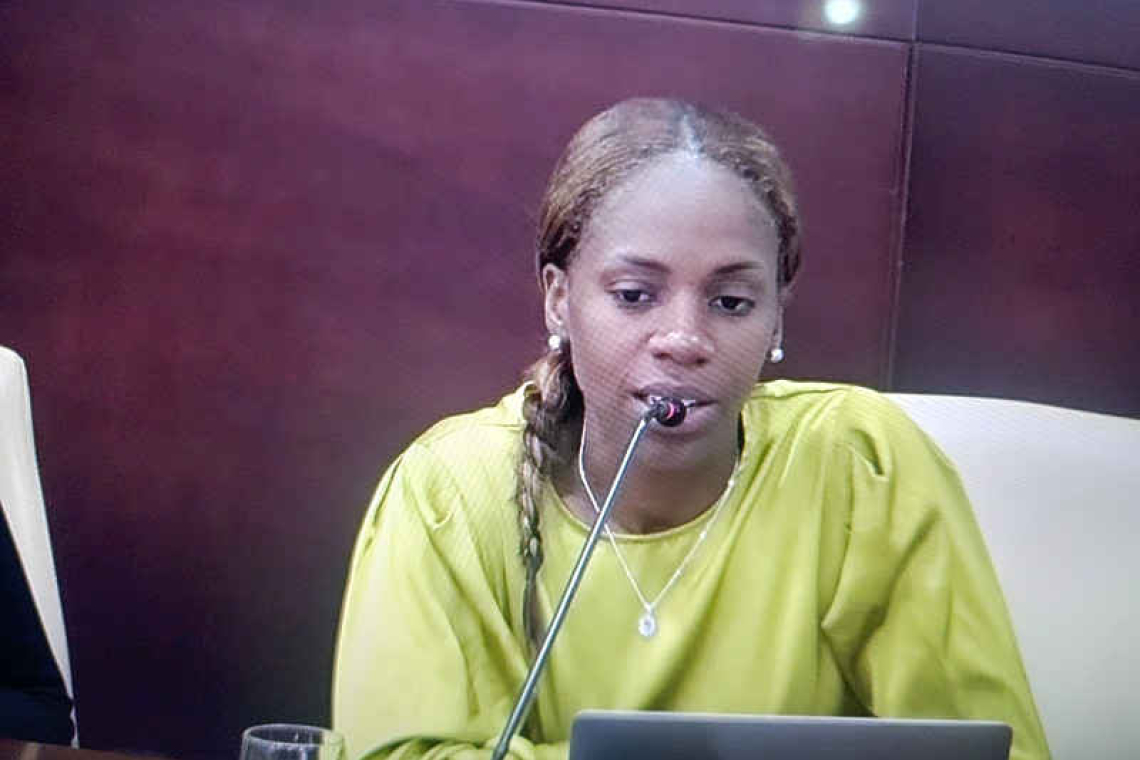~ 46% persons will get major psychiatric disorder ~
PHILIPSBURG--“It’s time to change the way we think about mental health,” said Mental Health Foundation (MHF) Clinic Coordinator and Psychologist Dr. Tameka Lambert.
Speaking at a panel discussion in Parliament on Thursday, she highlighted the importance of seeing mental health as a community issue and that asking for help is a sign of strength, not weakness. The discussion focused on suicide prevention and mental health struggles.
Dr. Lambert began her presentation by highlighting the widespread nature of mental health struggles. She explained the prevalence of mental health disorders, noting that “an average 46% of persons will get a major psychiatric disorder during their lives.” She stressed that mental health issues are not only personal but societal, with serious implications for the community.
“Mental health is not just a personal issue, it’s also a societal one. It affects our community,” she said. “For far too long, this has been surrounded by stigma. Thankfully, VSA [Ministry of Public Health, Social Development and Labour – Ed.], the World Bank, NRPB, and Trimbos are helping us to improve mental health on the island.”
However, she pointed out that the budget for mental health care per person in St. Maarten remains lower compared to other islands. “We cannot afford to keep ignoring the crisis unfolding before us. So today, we come together to face it head-on and to follow up on solutions,” she said.
Dr. Lambert then discussed the hidden demand for mental health care in the country. She noted that many individuals who die by suicide have never received the care they need, explaining, “Some were too afraid to seek help, others did not know where to turn, and some faced obstacles that made accessing care impossible.” According to Dr. Lambert, the reasons for the lack of help-seeking behaviour include stigma, self-judgment, financial barriers and insufficient mental health infrastructure.
The discussion also touched on the connection between mental health and poverty. “Society must solve first poverty, because poverty is one of the major contributors to mental health issues. If a person’s basic needs aren’t met, it will impact their mental health severely,” Dr. Lambert said.
She further discussed the societal impact of untreated mental illness. “Mental health is not just a concern for those affected, it impacts everyone. When individuals struggle with untreated mental illness, it affects their families, their workplaces, and society. Productivity declines, relationships suffer, and the healthcare system becomes burdened with crises that could have been prevented with early intervention,” she explained.
Despite progress in raising awareness, Dr. Lambert listed several ongoing challenges in St. Maarten’s mental health system, including limited resources, persistent stigma, financial barriers and a lack of early intervention. “There are too few mental health professionals to meet the growing demand. The number of psychiatrists, psychologists, and psychiatric beds available per capita is lower than in many other modern countries,” she said.
Dr. Lambert emphasised the importance of integrating mental health care into general healthcare services. “Training nurses, conducting community sessions, and integrating mental health support within local networks have proven to be highly effective strategies,” she said.
To address the mental health crisis, Dr. Lambert proposed a multi-faceted approach. “We must expand mental health infrastructure, increase awareness and education, improve access to care, and address substance abuse,” she said. She also stressed the need for a comprehensive strategy for suicide prevention, which involves universal, selective and indicated approaches.
“Universal prevention includes raising public awareness, mental health education in schools, and training for first responders,” she said. “Selective prevention targets at-risk groups through outreach programmes and mental health screenings. Indicated prevention focuses on individuals with existing suicidal behaviours, offering crisis intervention and support services.”
Dr. Lambert made a call to action for collective responsibility in addressing mental health. “It is our shared responsibility to create good mental health and to address mental health challenges within our community. Seeking help is not a sign of weakness, it is an act of strength,” she said. “By working together – governments, healthcare providers, educators, businesses, and the public – we can build a society where mental health is treated with the same urgency as physical health.”
The panel also included Turning Point Foundation Director and Counsellor Dr. Tasheena Maccow-Thomas and representatives of “Teen Times” and the Seventh-Day Adventist Church. The two medical professionals appeared in person in Parliament while video presentations were shown from the latter two.







